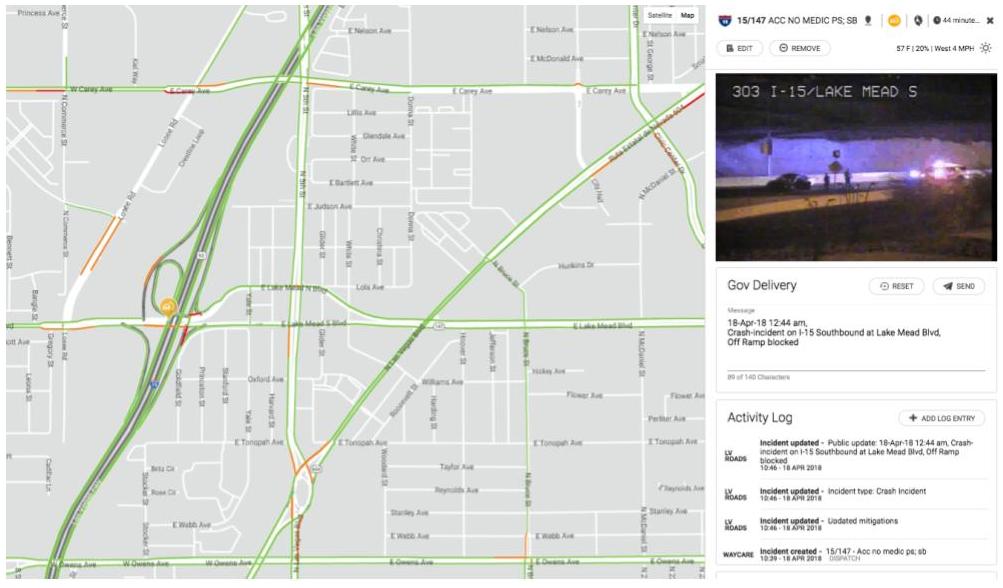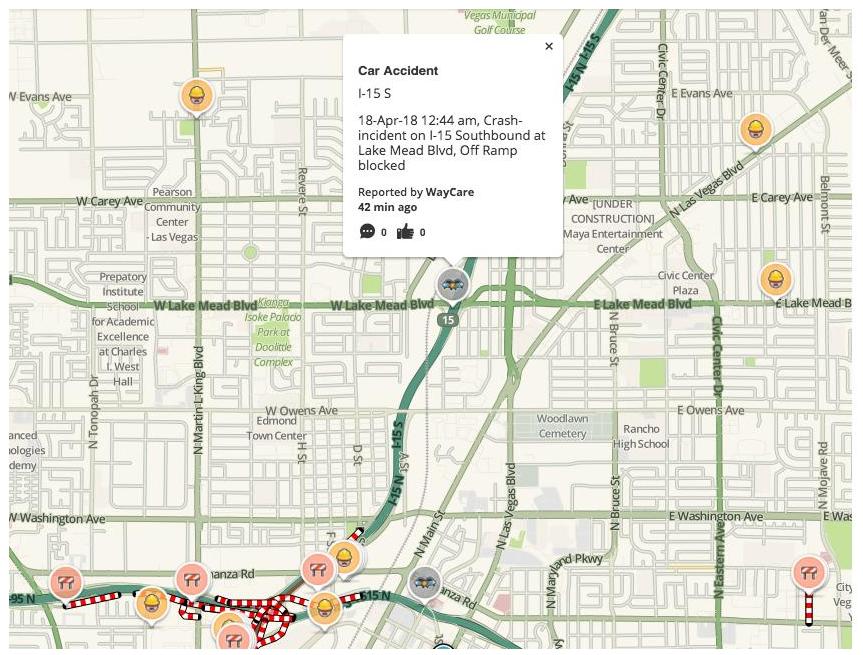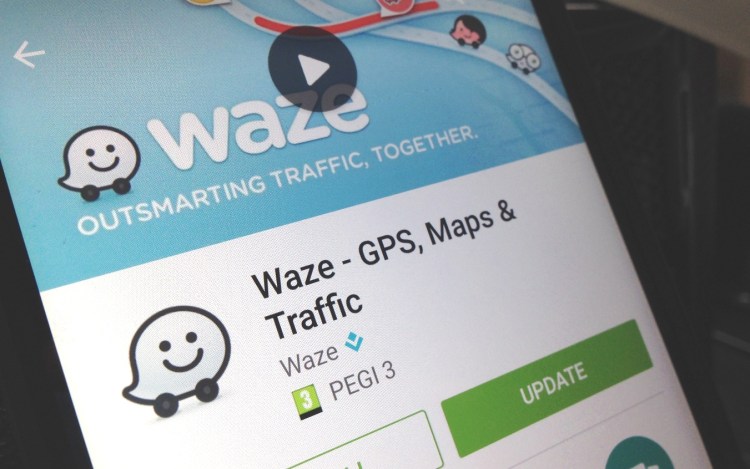Waze is partnering with traffic-management platform Waycare to share data and improve congested roads.
Founded out of Palo Alto, California in 2016, Waycare taps multiple historical and real-time data sources, such as connected car platforms, telematics services, road cameras, construction projects, fleet management platforms, weather services, and public transit, to build a more complete picture of a city’s roads and help municipalities improve safety and infrastructure.
The platform also facilitates two-way data sharing between public agencies and first-responder vehicles such as police cars, which helps cities improve traffic and road safety while giving drivers more detailed information for their journey.

Above: Waycare platform: Incident detected and data sent to law enforcement and other relevant agencies
The Waycare platform is geared toward public bodies — such as law enforcement, traffic operations, traffic engineering, emergency services, and the freeway service patrol — and serves as a repository for various parties interested in pooling their road and transport data. The company kicked off its inaugural project in southern Nevada back in October, and in the intervening months it has rolled out projects in California, Florida, and Delaware.
June 5th: The AI Audit in NYC
Join us next week in NYC to engage with top executive leaders, delving into strategies for auditing AI models to ensure fairness, optimal performance, and ethical compliance across diverse organizations. Secure your attendance for this exclusive invite-only event.
Waze, the community-powered navigation app acquired by Google in 2013, is used by tens of million of people around the world to find their way from A to B and allows them to alert other drivers when they encounter crashes, speed cameras, roadwork, and so on.
Pooling
By meshing their respective datasets, Waycare can promise cities a richer dataset for their traffic management programs, while Waze can give drivers more data about hazards, incidents, and any other disruptions that could impact their trip. Indeed, the opportunity to plug directly into one of the more popular navigation apps represents a notable evolution for Waycare’s platform.
“Waze, from the navigation side, is the most developed, methodical two-way communication partnership we have,” Waycare CEO Noam Maital told VentureBeat. “Waycare is providing direct relevant insights from traffic operations and emergency services to the public.”
Here you can see how a verified incident report provided by Waycare may look in the Waze app:

Above: Waze: Incident reported via Waycare
“Today’s announcement showcases how driver communities can benefit from interacting with municipal traffic organizations, who hold vital traffic information,” Maital said. “Our partnership with Waze will further enable municipalities using Waycare’s traffic management platform to unlock critical operational insights to improve traffic flow and traffic safety.”
Waze has sought to work with public organizations for some years already. Back in 2014, it launched its connected citizens program to improve roads through big-data partnerships. Similar to its latest tie-up with Waycare, these include two-way data-sharing partnership with cities. In 2016, Waze launched its global event partner program to work with organizers of major events, such as marathons, in order to improve traffic congestion through communication and data-sharing.
Many private transport-tech companies hold vast amounts of data that can tell important stories about how people traverse conurbations, which means data-sharing pacts are becoming increasingly commonplace.
Uber has partnered with cities in the past to help planners manage urban growth, and it recently joined the National Association of City Transportation Officials (NACTO)‘s new data-sharing project, known as SharedStreets. Elsewhere, China has been meshing ride-sharing data garnered from ride-hailing giant Didi Chuxing with smart traffic lights to ease road congestion.

